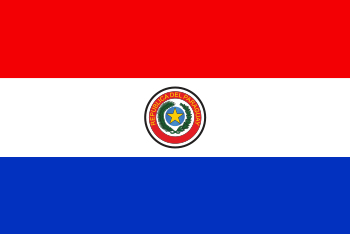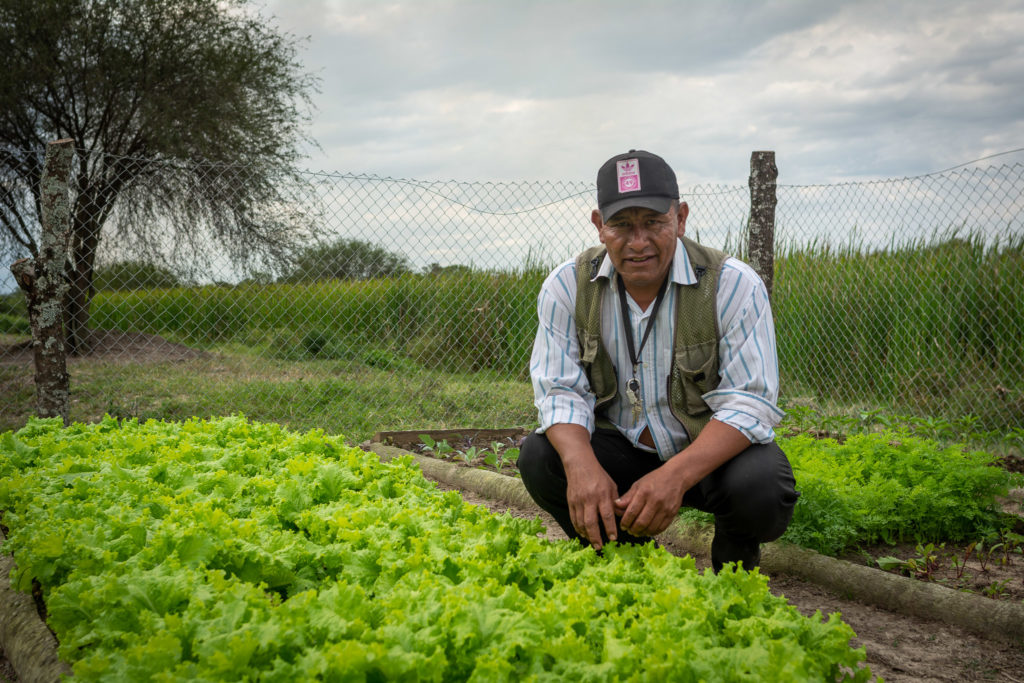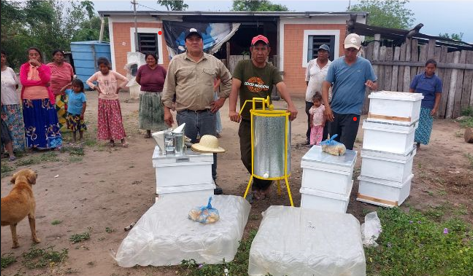 Paraguay Lower Chaco
Paraguay Lower Chaco
$59,100 needed of $120,000

Implementing Organization
Church World Service (CWS)
Program Summary
The Gran Chaco region is an immense and little-heard-of region in the heart of South America. It is the biggest forest reserve on the continent after the Amazon and one of the largest dry forests in the world. A major ecosystem, it is also a region with great cultural diversity, home to 25 different indigenous ethnic groups including communities of Guarani, Wichi, Qom and Enxet Sur, who for centuries lived as semi-nomadic hunter gatherers before losing most of their land.
This program is a continuation of the ongoing work of Pastoral Social Diocesana de Benjamin Aceval to strengthen the development of indigenous communities of the Paraguayan Lower Chaco. Participants are learning to improve food security through regenerative practices in agriculture, livestock farming, and beekeeping. The program also focuses on water infrastructure, promoting the participation of indigenous women in water resource management decisions, promoting civic participation and facilitating community exchanges with institutions to increase access to basic services, and working with communities to identify and mitigate the risks posed to them by extreme weather events.
Paraguay Lower Chaco Program Update
Success Stories

Water & Resilience
While Leonardo and his family often feel forgotten by their government and the world, they know they are always on the minds of local partner Pastoral Social Diocesana Benjamín Aceval. They’re receiving guidance on getting their land and water rights back, and getting assistance in repairing their water infrastructure, digging wells and installing water-collecting roofs to capture as much rainfall as possible. Leonardo’s is just one of the 196 families participating in this program. He says, “Thanks to your help, we have access to drinking water.”
Loss of water rights to land-grabbers, environmental degradation through multi-national mining, deforestation for cattle ranching, and global climate change are bringing everything from severe drought to devastating flooding. And hardship. As access to clean water decreases in the rural areas of the Lower Chaco region, basics like handwashing, bathing, cooking, cleaning, irrigating gardens and watering livestock are a constant worry. Leonardo, an agricultural leader, and his community are glad to have the support and guidance of local partner Pastoral Social to help them survive and even thrive.
It’s always been tricky for families to grow enough to eat, let alone have a surplus to sell at market. Drought tolerance is the key to sustainable livelihoods here. Leonardo’s community is among 10 that received goats and honeybees along with instruction on raising them and making a living from sales of meat, milk, cheese and honey. In 2022 there were 122 newly-registered beekeepers who produced around 16 gallons of honey each. In the Lower Chaco, as with just about anywhere on earth, honey is a highly-prized source of nutrition (and sweetness!) and commands a good price. Leonardo says, “Today there are even more hives loaded with honey.” What he earns from his sales allows him to cover the cost of household staples and other expenses.
As these rural towns move forward, their residents are educating themselves. Participants attend classes in making water drinkable, the consequences of consuming contaminated water, literacy, numeracy, dry-land growing, indigenous rights, and more. Overall, this program focuses on connecting communities, local government authorities, human rights organizations and other involved groups to understand the impact that climate change is having locally and find ways to mitigate its harmful effects. Through their resilience and commitment, the communities of the Paraguayan Gran Chaco region have a newfound strength and are facing the future with more optimism.
Paraguay Lower Chaco Program
Led by Church World Service and local partner Pastoral Social Diocesana Benjamín Aceval
